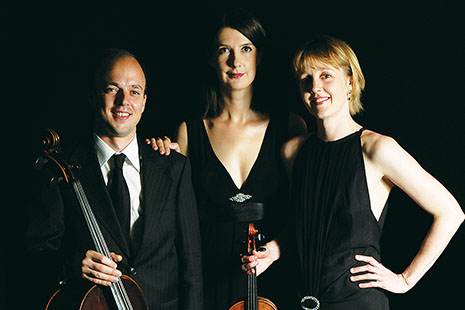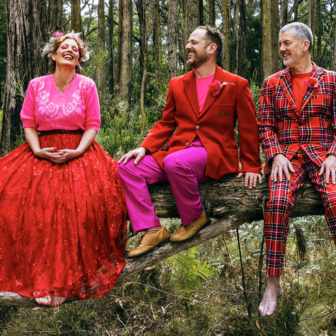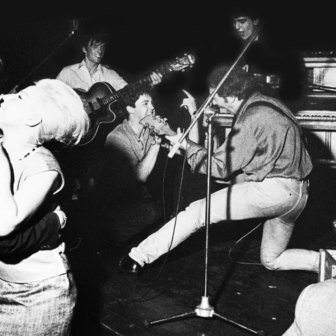THE other Sunday I spent five hours on a train to hear four minutes of my music. A friend told me I was mad. The piece was three years old, it was not a premiere and I had a recording at home if I really wanted to hear it. When I explained that I was going largely for the players’ sake, my friend decided I must be a paragon of virtue.
But I am not a paragon of anything, so why the trip? It was true that I was going for the players’ sake – in this case, the Seraphim Trio, whose members it’s always nice to see, even when they’re not playing my music – but I certainly wasn’t going to North Sydney for social reasons.
Players and composers need each other: it is a symbiotic relationship. I know there are players who run a mile from new music and prefer to bury themselves in Bach and Beethoven (you can nearly always hear the lack of imagination in their playing), just as there are composers who avoid interpreters and write for machines. But, by and large, composers need players simply so their music can be heard, while players need composers because… Come to think of it, why, exactly, do they need composers?
I have heard players talk about this, and they seem to commission and perform new music for a variety of reasons. For many of them, playing new scores is the most normal thing imaginable, as indeed it should be and was for centuries. The idea that you might perform old music alongside the new only began 200 years ago (at the same moment in history when we began to speak of “classical” music), while the dominance of classical concerts made up entirely of old music is a twentieth-century phenomenon. But most players, as opposed to music administrators, are unhappy with a solidly familiar diet. They get bored.
A common reason performers give for wanting to play new works is that they are fired up by the notion of bringing music to life for the first time. In the best performances, of course, there is always a sense of this. Even when the piece is by Mozart or Brahms, an inspired player can make it seem brand new and astonishing. (This is why those who slur classical music as “heritage art” miss the point: great music renews itself in great performances.) But there is nothing quite like being the first person to lift the notes off the page and send them out to a listening audience.
And there’s another, seemingly trivial, aspect to this that I often hear from players who spend much of their time working on behalf of dead composers. They enjoy the opportunity to ask questions of composers. They can’t ring up Haydn, but they can ring a living composer to ask if perhaps a certain passage might go a little faster, if a particular line would sit better an octave higher, and if that really is an F natural in bar 225 and not, perhaps, an F sharp. In a word, they enjoy the collaboration. And while, ideally, they would like to hear from Haydn how well they had played his music, in his absence they must make do with people like me.
As it happens, the Seraphim Trio played my little piece superbly and I heard it with new ears. If a piece is lucky enough to receive multiple performances over a number of years by different players, it invariably changes. I’m not talking about a composer’s revisions or even “practice makes perfect.” I don’t even mean that different players emphasise different aspects of a piece, though that’s certainly part of it. No, it’s something altogether weirder.
I’m not a mystical person, but I think pieces of music can take on lives of their own. Even when they’re not being played, they appear magically to mature. After a first performance, a piece seems to enter the “collective unconscious,” so that the next time it is played, even by completely different performers, it has become more comfortable to “wear,” like a new pair of shoes that have been broken in. And it sounds different, too. Sometimes, you become aware of its faults. But sometimes you hear qualities you hadn’t noticed before, even as the composer. There will be details that you’d forgotten you’d put in, and perhaps others you never knew were there.
That was the feeling I had coming home on the train the other week after the performance of The Spirit of the Staircase. The Seraphim Trio had revealed my piece to me. The fast, scurrying passages had flashed brilliantly by; pauses had been longer, more pregnant, the dark sonorities richer-hued and mellower. Some alchemy had occurred, a transference – indeed a transfer of ownership. Because, above all, the Seraphim had revealed to me that it was now their piece. •




